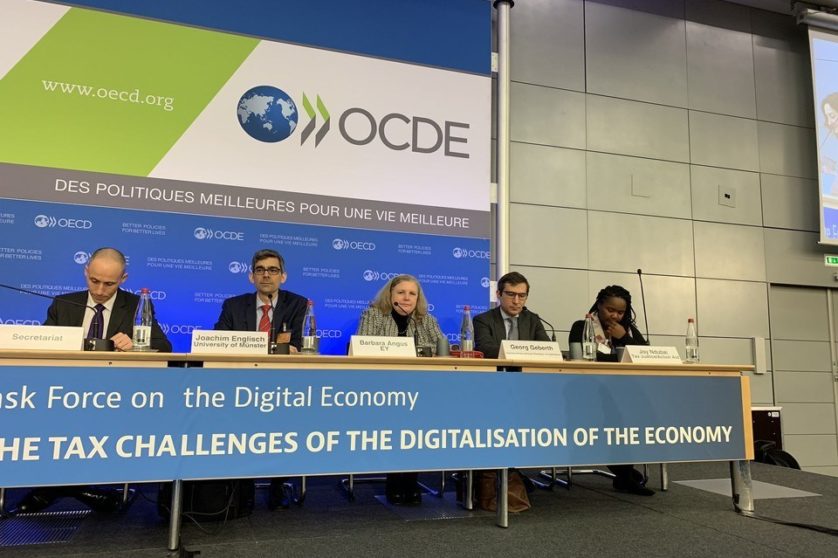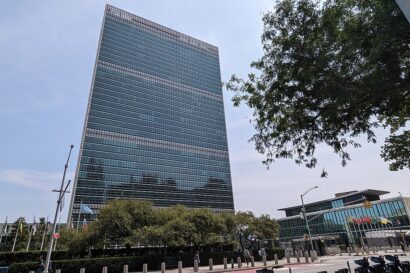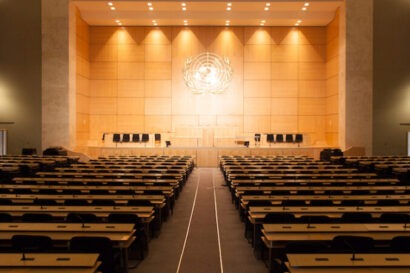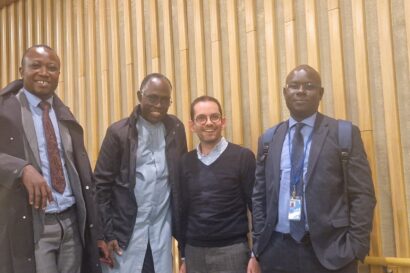In response to Allison Christians’ blog providing suggestions on how the OECD’s consultation on the unified approach could regain equal footing for developing countries, Ben Dickinson points out that the 135 members of the Inclusive Framework (IF) are working together in a participatory way. In emphasizing the need for countries to negotiate as sovereignties rather than in blocks that could damage the chances of consensus, Dickinson mentions that, because of its diversity, the G24 grouping “may not help provide useful grounds for compromise or consensus”. In the same breath, Dickinson asserts that the OECD’s role is not to propose solutions that favor one group or another, but explore a potential consensus solution with the inevitable compromises that requires. It is important to place this perspective in context.
What does achieving consensus mean?
The term consensus has been used in this debate with little time taken to question what the process of achieving consensus actually involves. One of the accepted ways of reaching a resolution at the UN includes by way of consensus, understood as the absence of objection rather than a majority vote. Similarly, for WTO decisions, consensus is arrived at where no member present at the meeting, when the decision is taken, formally objects to the proposed decision. In both these cases, consensus decisions form the basis of legally binding treaties among member states.
Although the OECD is also an intergovernmental organization, the implications of reaching consensus through the Inclusive Framework are different. When it comes to international tax rules, the OECD is a standard-setting body whose standards do not have legally binding force at the national level unless they are incorporated into a country’s domestic law. This means that countries may acquiesce to a consensus with which they do not agree, knowing that they can exercise their sovereign taxing rights by opting to apply unilateral measures that differ from the consensus solution.
What then do we mean when referring to consensus for purposes of the IF’s consultative process? Similar to the UN and WTO, it would be reasonable to expect that this would mean no objections being made. Do unilateral measures constitute.
Unilateral measures demonstrate a lack of confidence in the IF
Although the OECD has continually emphasized the negative implications of unilateral measures, namely double taxation and heavy administrative costs for business, the motivations for countries to continue to participate in this consultative process and arrive at a consensus have not always been obvious. A number of countries including the UK, Austria, India and Italy have introduced unilateral measures. They are under pressure to raise revenues to meet national financing gaps, concerned by the way the digital economy is aggravating BEPS, or simply determined to provide a level playing field for businesses in the digital and traditional economies. These developments have not gone unnoticed in developing countries, many of which are considering following these countries’ examples if the OECD process produces an unsatisfactory outcome.
Despite the implementation of unilateral measures, the IF process is pushing countries towards a lowest common denominator consensus on less ambitious proposals that, as Allison Christians argued, falls short of what is necessary to realize fair and sustainable taxation. The limited scope of the unified approach proposed by the OECD secretariat only meets a fragment of the demands articulated by the original three proposals put forward by the G24, US and UK. The OECD expects its new proposal to advance the objective of arriving at a consensus solution by 2020, despite a lot of uncertainty regarding the ability of the unified approach to gain critical mass support, and the current lack of clarity as to the fiscal impact for each country.
Unilateral measures constitute an implicit objection to the current proposals. At a minimum, there is at least some duty to reflect on the concerns and limitations these ‘objections’ raise. Furthermore, this process can hardly expect to gain the critical mass for success without addressing the unique needs and concerns raised by groups of countries, such as the G24, which are still considering their options. It comes as no surprise that groups of countries with similar approaches or opinions would emerge to strongly voice the concerns that seem to have been passed over in favor of certain sovereignties.
The OECD Secretariat must take power imbalances into consideration
The unified approach is not yet a proposal that has arrived at consensus. In order to realize consensus in a participatory manner, not only will the IF need to consider some of the recommendations raised by Allison Christians, but it will also need to accept the inherent power imbalances that exist between countries negotiating within any international framework. In doing so, the OECD secretariat should strive to refrain from discouraging blocks or groupings that may have a stronger and more articulated voice to raise objections where their individual member countries, often those most affected by imbalances in power, may not feel able to.
The process of consensus cannot be so linear when it comes to matters concerning revenue raising. Countries need to consult one another and form groupings, to pool their technical capabilities and negotiating power. The chance of achieving consensus could be further damaged by efforts to silence such collective objections. The role of the OECD secretariat, in exploring what a consensus solution looks like, should be to raise and address the concerns and needs emerging from groupings and sovereignties alike with a view to a fair, simple and sustainable solution that achieves true consensus.




